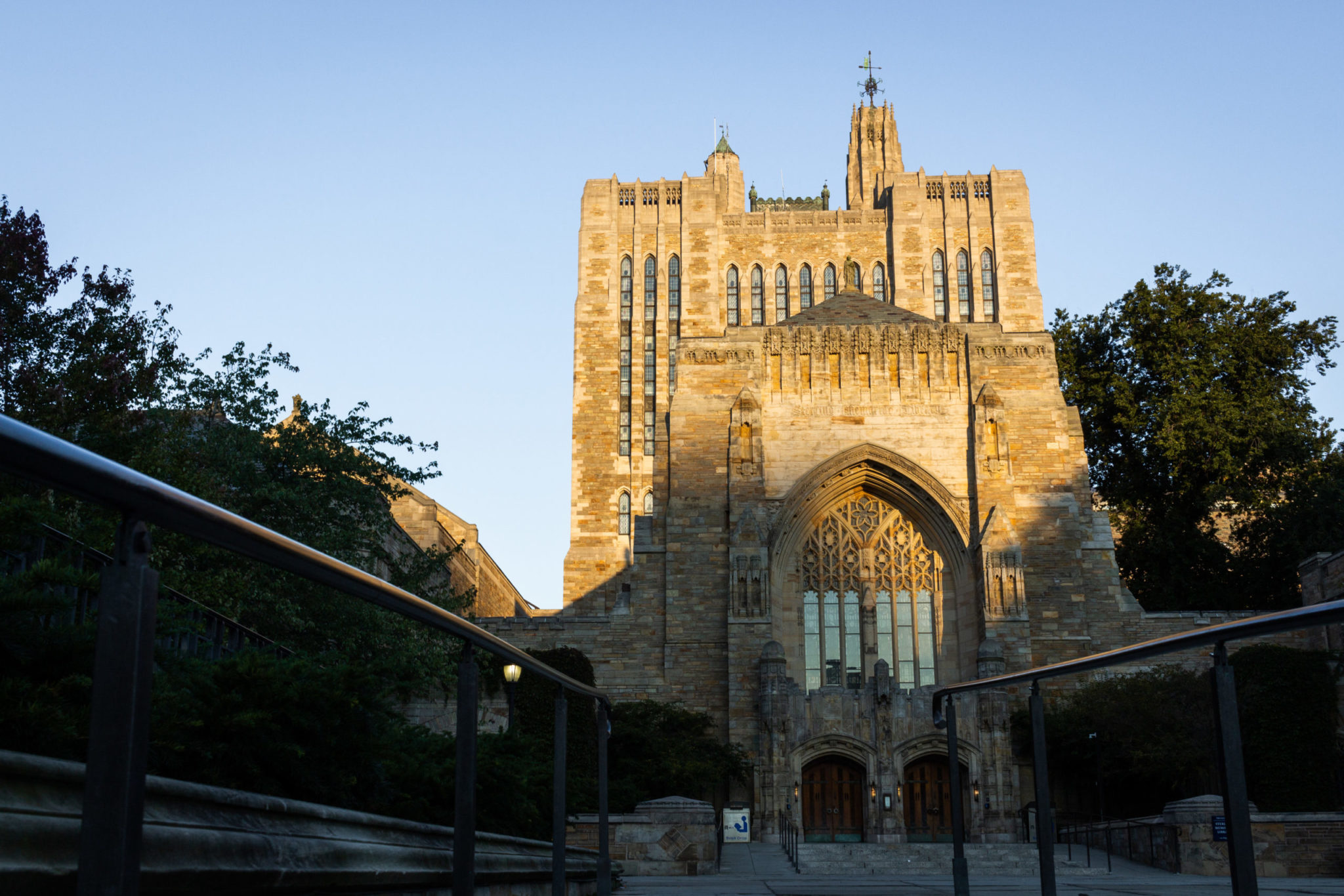
Daniel Zhao, Senior Photographer
Over the past few months, Yale’s Faculty of Arts and Sciences Senate met multiple times to discuss a packed agenda — which included intellectual freedom at Yale-NUS, ethical endowment investment and Yale’s reopening plans.
While the inaugural meeting of each year’s senate is normally in September, because of the COVID-19 pandemic and the disruptions it caused to all levels of University functions, the senate held its first closed session in July. The group met again in August before holding its first open session of the year in September, which was attended by 86 faculty members. All of the senate’s meetings will be held over Zoom until further notice.
“Because of the complications of this academic year and the challenges of the COVID crisis, the FASS has worked harder and has taken on more since July than in any previous year,” wrote Matthew Jacobson, 2020-21 FAS Senate chair, in an email to the News.
Twenty-two elected faculty from all ranks and divisions of the Faculty of Arts and Sciences form the senate body, which was created in 2015. Although the senate is not an administrative body, it is intended to be a voice for faculty and a bridge between the faculty and Yale administration. As a result, the senate frequently holds town halls for the faculty at large and works closely with different administrative officials on issues of concern. This year, those issues include Yale’s reopening and its impact on faculty, as well as issues of equity and diversity.
Other ongoing discussions involve instructional faculty contracts, budget reports and visa issues for international students.
This year, the FAS Senate has 12 committees, which include a COVID-19 Crisis Committee, a Diversity Committee and a Committee on Instructional Faculty and Academic Support.
The COVID-19 Crisis Committee, an ad hoc committee established by the current senate, is chaired by associate professor of sociology Emily Erikson. They began meeting in late August, Erikson said, and have two main agenda items at the moment: facilitating communication between University administrators and faculty and urging the administration to think about long-term plans and potential changes.
“This includes learning from our current experience and applying that knowledge in the future, in terms of things like childcare needs as well as best practices for online instruction,” Erikson wrote in an email to the News.
The Diversity Committee, chaired by associate professor of molecular, cellular and developmental biology Valerie Horsley, advocates for diversity, both in faculty and in the broader Yale community, according to FAS Senator Marta Figlerowicz.
“It’s my first year on the senate,” she added. “I’m hoping to learn a lot from it.”
The senate also discussed other non-coronavirus topics: issues from last year that were derailed in March after campus closed due to the pandemic, such as fossil fuel divestment and intellectual freedom at Yale-NUS.
Jacobson and Erikson both mentioned that child care for faculty members is a priority for the coming year, as many faculty members now work from home with children who are learning remotely. This issue is still in the early stages of discussion.
On Sept. 17, the senate also issued a report surrounding copyright and intellectual property over Zoom, which, Jacobson said, is “not covered by existing copyright law.” In that report, the senate recommended that Yale’s copyright policy be amended to clearly state that all digital materials created by faculty are the property of the faculty members, not the University. They also recommended that the University establish a committee to revise the copyright policy.
The next FAS Senate meeting will be on Oct. 15.
Madison Hahamy | madison.hahamy@yale.edu







